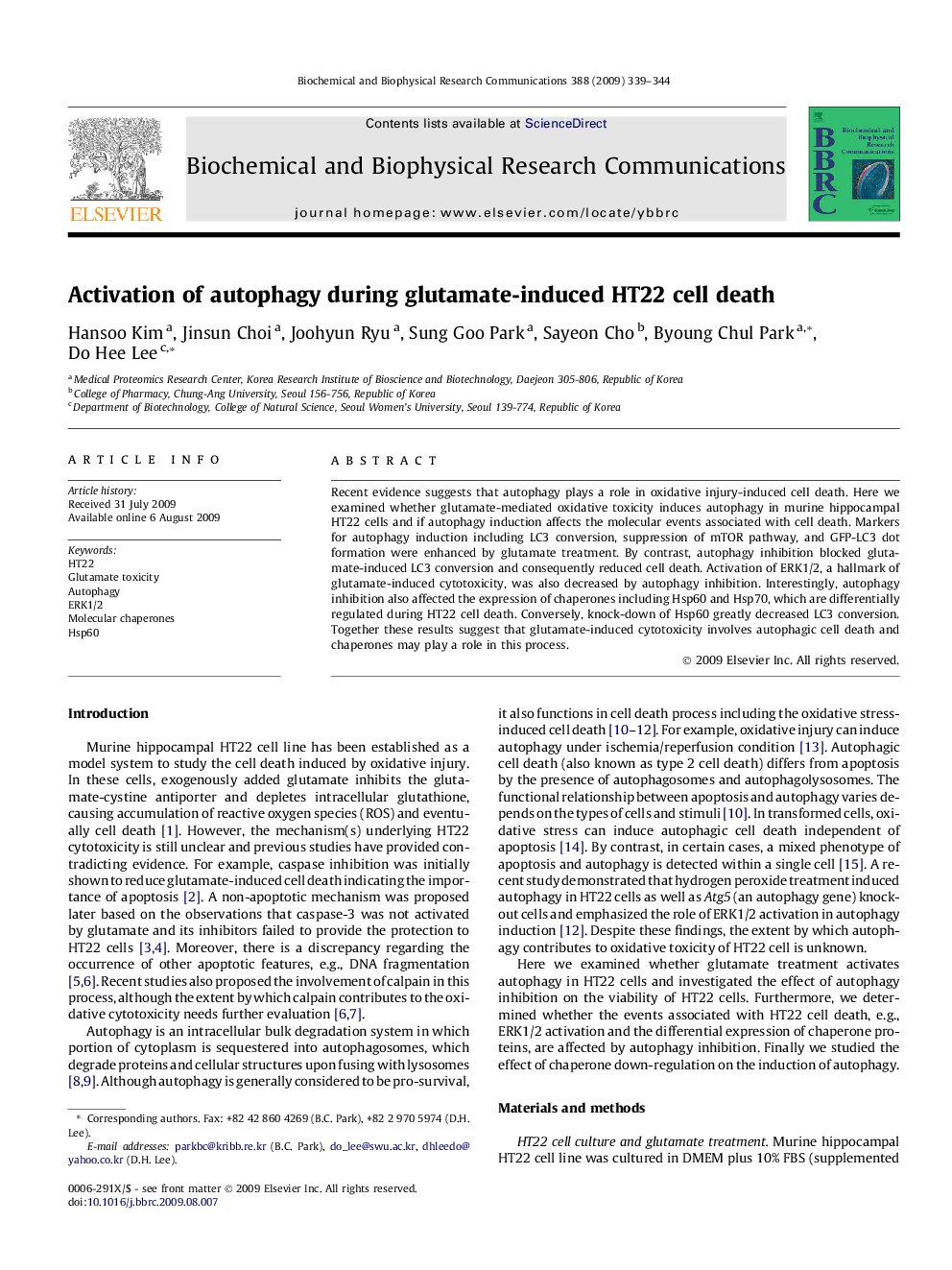| Article ID | Journal | Published Year | Pages | File Type |
|---|---|---|---|---|
| 1933047 | Biochemical and Biophysical Research Communications | 2009 | 6 Pages |
Recent evidence suggests that autophagy plays a role in oxidative injury-induced cell death. Here we examined whether glutamate-mediated oxidative toxicity induces autophagy in murine hippocampal HT22 cells and if autophagy induction affects the molecular events associated with cell death. Markers for autophagy induction including LC3 conversion, suppression of mTOR pathway, and GFP-LC3 dot formation were enhanced by glutamate treatment. By contrast, autophagy inhibition blocked glutamate-induced LC3 conversion and consequently reduced cell death. Activation of ERK1/2, a hallmark of glutamate-induced cytotoxicity, was also decreased by autophagy inhibition. Interestingly, autophagy inhibition also affected the expression of chaperones including Hsp60 and Hsp70, which are differentially regulated during HT22 cell death. Conversely, knock-down of Hsp60 greatly decreased LC3 conversion. Together these results suggest that glutamate-induced cytotoxicity involves autophagic cell death and chaperones may play a role in this process.
